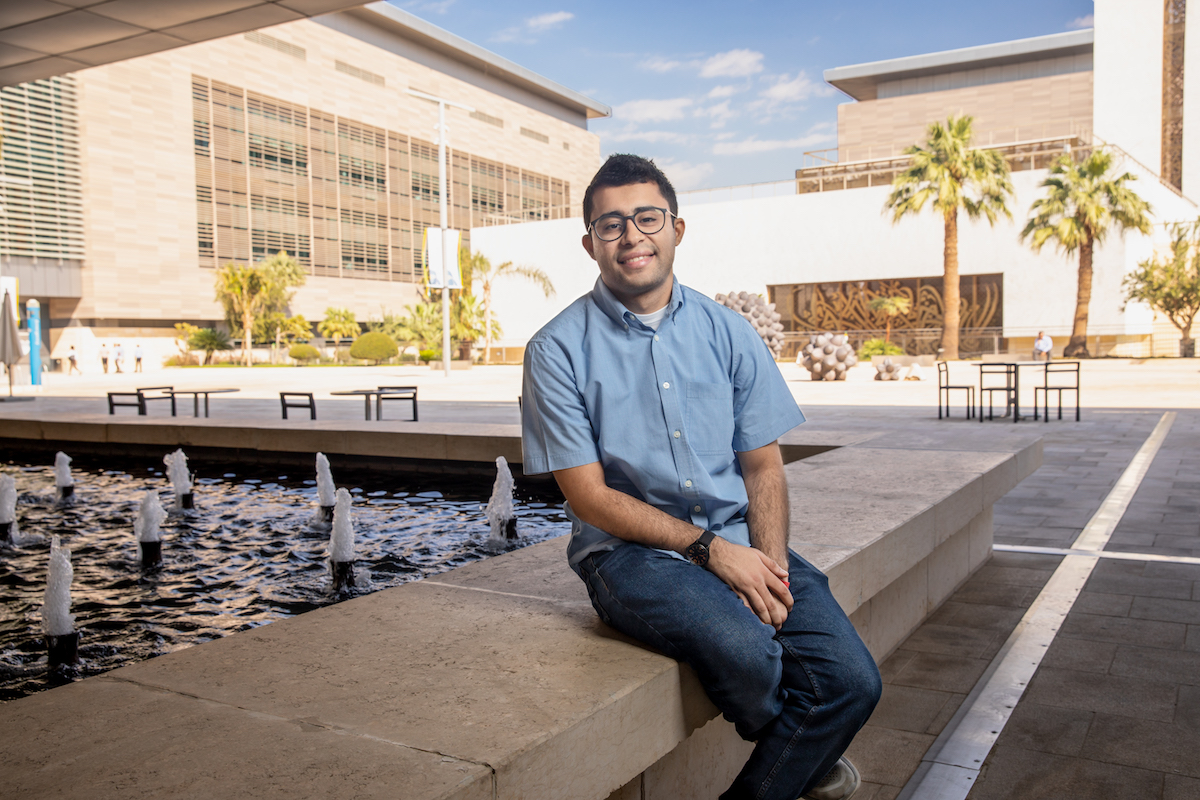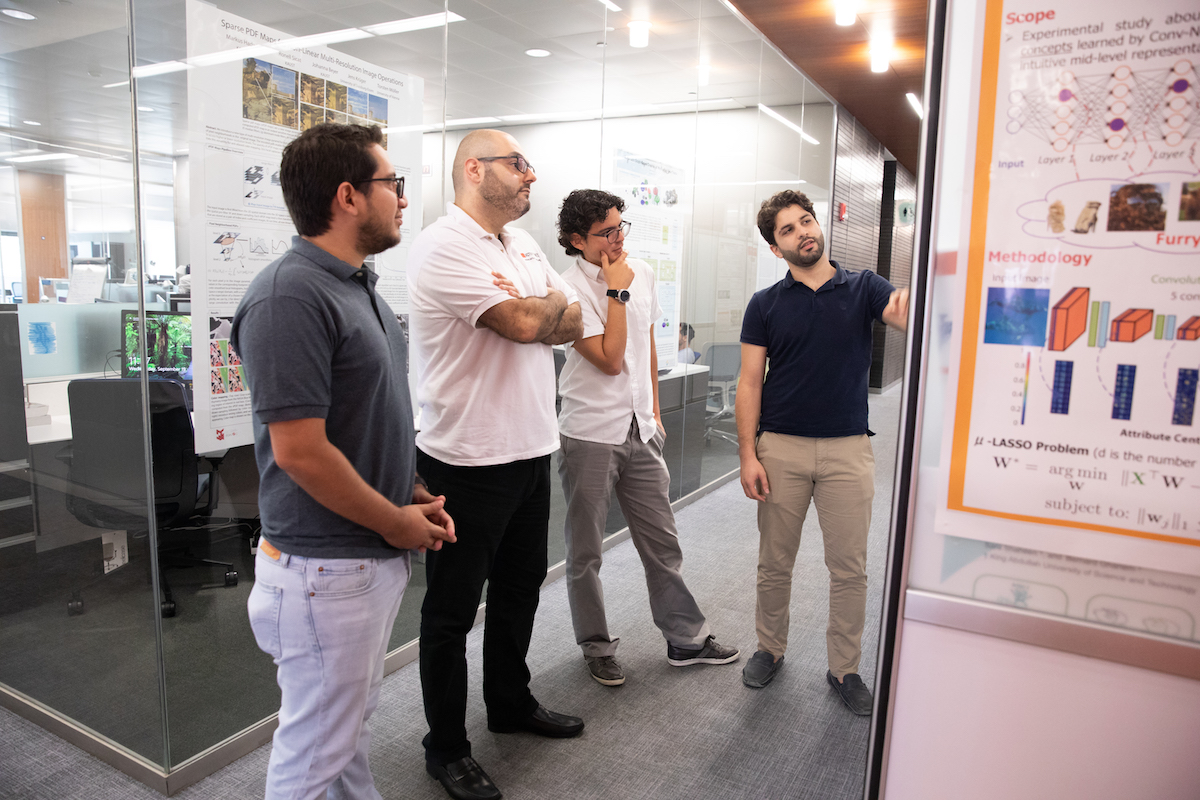Student Focus: Adel Bibi

KAUST Ph.D. student Adel Bibi is currently completing his degree under the supervision of Associate Professor Bernard Ghanem in the University's Visual Computing Center. File photo.
-By Tanya Petersen, KAUST News
KAUST Ph.D. student Adel Bibi, who works on bridging the gap between theory and practice in deep learning, believes we're living in a very exciting time.
For Bibi, this exciting time is one in which machines can be taught to perform certain tasks many times better than humans. From Google DeepMind defeating for the first time top professional players at the game of Go to OpenAI developing learning machines that can defeat world champions in Dota2, a multi-player online battle arena, the research field of teaching machines to learn—best known as machine learning/artificial intelligence—is booming.
Currently on a six month industry experience internship with Intel in Munich, Bibi previously worked on various computer vision problems but began converging this work towards bridging the gap between theory and practice in deep learning.
"Most of these new machines that have shown tremendously exciting performances have an underlying model best known as deep learning. While we are very good at developing powerful deep learning models that can perform various types of tasks very elegantly and better than average humans, we still have little understanding of why they work the way they do," he said.

Adel Bibi, a Ph.D. student in the University's Visual Computing Center, feels we're currently in an exciting time period for machine learning and artificial intelligence. Image courtesy of Shutterstock.
"In my work, I try to marry the knowledge we have in optimization and mathematics in general with deep learning models to better understand them and to potentially—systematically from theory—build better models. In particular, I'm interested in studying the probabilistic, optimization, geometric and interval bound properties of a fundamental block of layers in a deep network that are composed of an affine mapping followed by rectified linear units followed by another affine map," Bibi added.
Bibi believes that understanding deep learning through various mathematical lenses will help us be smarter in our choices in building such models and this will advance the field potentially faster.
"The unsatisfying and unprecedented dichotomy between theory and practice in deep learning was the key motive for me behind pursuing such a problem," he said. "Moreover, it is always interesting and illuminating to link various branches of mathematics to the deep learning community. We still have a long way to go, but it is indeed an exciting time with many questions yet to be answered."

KAUST Ph.D. student Adel Bibi's supervisor Associate Professor Bernard Ghanem (second from left) leads the University's Image and Video Understanding Lab. File photo.
Bibi is completing his Ph.D. at the University's Visual Computing Center under the supervision of Associate Professor Bernard Ghanem and has one word to describe his learning experiences at KAUST: outstanding.
"The research environment at KAUST can hardly be matched at any other school. We have easy access to state-of-the-art resources, including one of the fastest supercomputers in the world, Shaheen II."
For Bibi, however, it's not all about the work. He feels a special part of the KAUST experience is the bringing together of people from all around the world, allowing for a true mix of different backgrounds and cultures.
"This overwhelming experience manifests itself best when I realize that I always know someone in any country I visit [who] at some point was [at] KAUST," he said.
Related stories:
- Student Focus: Mohammad Alabdullah
- Postdoctoral Fellow Focus: Adrian Galilea
- Student Focus: Ming-Hui Chiu
- Student Focus: Areej Aljarb

